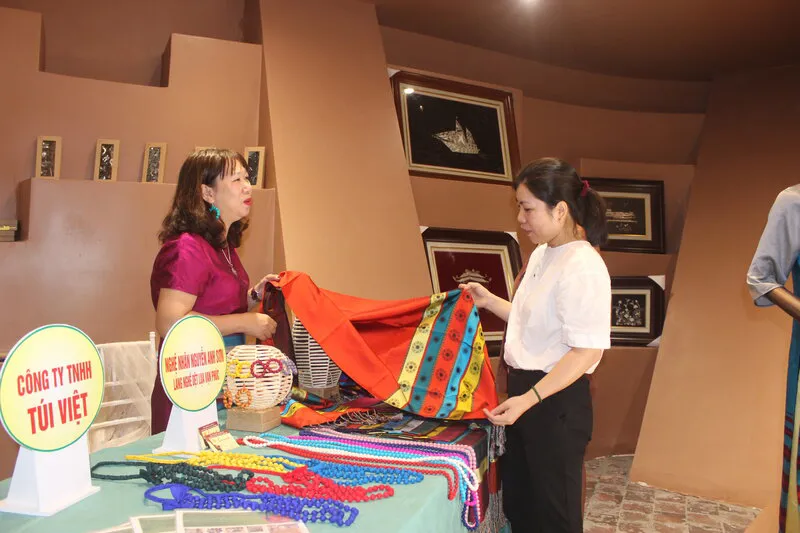OCOP program breathes life into Hanoi rural economy
Effective implementation of the OCOP program helps localities realize their potential in economic development and promote tourism, said a local official.
To date, Hanoi has set up nine showrooms across the city to promote and sell products under the national’s One Commune One Product (OCOP) program, with a view to honoring prominent craft villages’ goods. The showrooms not only help bring high quality products to local customers, but also contribute to economic development in rural areas.
Hanoi's leaders visit an OCOP showroom. Photo: Hoang Quyet. |
Under the instruction of the Hanoi People’s Committee and the Ministry of Industry and Trade, the municipal Department of Industry and Trade has identified multiple locations to set up OCOP showrooms in Hanoi during the 2019 – 2020 period.
In October, the Department in collaboration with Gia Lam district People’s Committee launched an OCOP showroom to boost sales of local products and promote tourism at traditional craft villages in Bat Trang commune, Gia Lam district.
The showroom is located within an area known as the Quintessence of the Vietnamese craft village of Quang Vinh Pottery Company in Bat Trang commune, which showcases Hanoi’s unique craft products, such as those made from porcelain, pottery, rattan or bamboo.
Vice Chairman of Gia Lam district People’s Committee Nguyen Duc Hong said the OCOP program has significantly contributed to the locality’s efforts in building new-style rural areas, in turn raising people’s living standards and ensuring high economic growth of the district.
Mr. Hong added the district is home to five craft villages, including the well-known Bat Trang village. In 2019, 19 products from the district were qualified as OCOP products, including pottery and porcelain items, fresh vegetables and processed food.
“Effective implementation of the OCOP program helps localities realize their potential in economic development and promote tourism among domestic and foreign tourists,” Mr. Hong suggested.
OCOP products on display. Photo: Hoang Quyet. |
Expanding OCOP showroom network in Hanoi
Vice Director of Hanoi’s Department of Industry and Trade Tran Thi Phuong Lan said in 2019, Hanoi has around 301 products rated by OCOP with three stars and above. This year, it is estimated an additional 800 products would be classified with three star-rating and above, requiring more OCOP showrooms to be set up.
To realize this goal, the department is cooperating with a number of districts, including Ha Dong, Gia Lam, Quoc Oai, and Son Tay, among others, as well as shopping malls, and supermarkets to set up OCOP showrooms and promote craft and agritourism.
Ms. Lan said the department targets to have 60–70 OCOP showrooms in 2021, which would form a distribution network of OCOP products and expand its market shares in the city.

.jpg)










